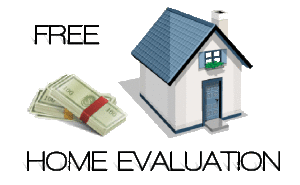The Perils of Selling A Home Yourself
” Beware The Perils Of Selling A Home Yourself “
By Douglas A. Gray, LL.B.
When the time comes to sell your home, you may be tempted to sell it yourself. There is primarily only one reason for doing so, and that is saving on a real estate commission. The only other motivation could be a personal challenge or learning experience, but basically the desire to save money is the main motivator. You may indeed save money. On the other hand, the saving could be an expensive illusion.
Based on my personal and professional experience and observation, there are some general disadvantages of selling a home yourself, as opposed to using a carefully selected and experienced REALTOR.
The following remarks are not intended to dissuade you from attempting to sell your own home, but to place the process in realistic perspective. The comments apply whether you are selling your own home or an investment property. In the end, you will have to balance the benefits and disadvantages of course, and decide what is best for you.
Inexperience
If you don’t know all the steps involved, from the pre-sale procedures and strategies to completing the deal and receiving the money, you could and probably would make mistakes that could be costly to you.
Emotional Roller Coaster
Many people, especially with their own home, tend to get emotionally involved in the sale process because of the direct interaction with the prospective purchasers. For example, frustration can be experienced due to rejection of the house, negative comments or fault-finding, people whose personality you don’t like, or people who negotiate toughly on the price. These one-on-one direct dynamics or comments can sometimes be taken personally, and therefore be a cause of stress.
Time Commitment
You have to have open houses as well as show your property at times that may not necessarily be convenient to you. In addition, you are going to be spending time preparing the ad copy and staying at home to respond to telephone calls or people knocking on the door.
Advertising
Costs include all the daily or weekly newspaper classified and/or box ads, as well as a lawn sign. You would pay for these yourself. In addition, you may not know what specific types of advertising would be appropriate for your type of property; how to write ad copy that would grab the attention of a reader and prospective purchaser; nor how to identify and emphasize the key selling features of your property.
Limited exposure
There are considerable differences in market exposure in terms of advertising by yourself and the types of advertising and promotion a REALTOR could do for you. There is obviously a direct correlation between the nature and degree of market exposure and the end price. Clearly, limited market exposure means limited prospective buyers.
Legal problems
The prospective purchaser may supply you with his own agreement of purchase and sale. This contract may have clauses and other terms in it that could be legally risky, unenforceable, unfair, or otherwise not beneficial to you. You may not recognize these potential problems or risks. In addition, you could end up agreeing to take back a mortgage (vendor-back mortgage) when it would not be necessary or wise, or to accept a long-term option or other legal arrangement that could be risky.
Lack of familiarity
You may not have a clear or objective idea of exactly what a similar property in your market is selling for, or the state of the real estate market at that point in time. This can place you at a distinct disadvantage. For example, if you are being unrealistic in your pricing, along with limited advertising exposure, you could literally price yourself out of the market. Prospective purchasers may not even look, let alone make an offer. You may eventually sell your property, but only after several price reductions and after a long period of time. Naturally, of course, this depends on the market and the nature of your property. Conversely, you could have a property with unique features or potential that could justify a higher sale price than you might realize.
No pre-screening
You would not generally know the art of pre-screening prospects in the terms of questions to ask them over the phone. The end result is that you could waste your time talking to people over the phone or showing them through the house, who are not and never will be serious prospects. You could also end up accepting an offer from someone who does ont realistically have a chance of financing the house, or who asks for unrealistic time periods for removing purchaser conditions, which effectively would tie up your property during that time.
Offer Price
You may think the offer is the best offer from that prospective purchaser, or any purchaser, and therefore may accept it. That price may not be the best price at all. You may have started too low or too high for your initial asking price, based on emotion or needs, not reality; you may have received a “low-ball” offer from a prospective purchaser that was never intended to be accepted but was designed to reduce your expectations; you may be inexperienced in applying real estate negotiating skills; or you may be subjected to effective closing skills on the part of the prospective purchaser.
Lack of skills
This problem was referred to in the previous point. You may lack any negotiating or sales skills and feel very uncomfortable or anxious in a negotiating context. As a consequence, the price and terms you eventually settle for may not be as attractive as they otherwise could be.
Discount
It is not uncommon for the prospective purchaser to determine what the fair market value is and then ask to have an additional discount equal to the real estate commission you are saving. The primary reason why prospective purchasers are attracted to a “For Sale by Owner” is the prospect of getting a better deal than a property listed with a REALTOR, due to the commission otherwise built into the sale price.
The primary reason why you are selling the property yourself is to save the full amount of any commission otherwise payable. Hence the problem. A compromise may be possible whereby the price is further reduced by a percentage of the commission saved. Again, in practical terms, it is normally an illusion to think that you will save the full or even a substantial amount of the commission. Would you not have a lingering doubt that you could have netted more if it was listed with a REALTOR?
Buyer’s market
Buyer’s in this type of market are very price sensitive, negotiate toughly because they want the best deal, and have the time to be selective after comparing what is available in the market. You are at a disadvantage if you don’t receive all the exposure possible and use all the negotiating and selling skills available. You could go down further by that time in a declining sale market, due to oversupply of homes, limited demand and reduced exposure.
As you see, there are distinct advantages to utilizing the services and skills of a professionally trained and experienced REALTOR. Of course, there are exceptions in certain situations where you may choose to sell yourself, but you have to be very aware of the potential disadvantages. The vast majority of homeowners and real estate investors realize the benefits of using a REALTOR and do so, whether for buying or selling real estate.
______________________________________________________
Douglas Gray, LL.B, is a Vancouver-based recently retired real estate lawyer and one of Canada’s foremost authorities on real estate education. Mr. Gray’s syndicated column appears in the
Vancouver Sun
Calgary Herald
Edmonton Journal
Windsor Star
Hamilton Spectator
Kitchener/Waterloo Record and
Kingston Whig-Standard.
This particular column was also carried in Canadian Realtor News.


































